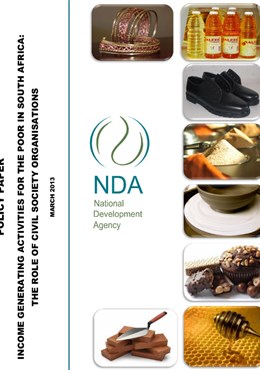Income Generation
Income generating activities focused on poor communities focus on creating opportunities for communities to productively use locally available resources to develop less state and aid dependent, more self-reliant households and communities able to care for themselves. Additional benefits of propoor income generating activities include: contributing to reduce poverty; improving the wellbeing of the communities as well as empowerment; and enhancing self-reliance and community development. Income generating activities range from agricultural production (crop, livestock), agricultural wage employment, non-agricultural wage employment, non-farm enterprises, transfers and non-labour income sources. The selection and mix of income generating activities depends on local context and all parties, particularly civil society organisations (CSOs) involved in designing and implementing such activities should critically consider the local circumstances of each target community. The CSOs need to ensure that their interventions in income generating activities assist vulnerable communities to secure income through their own efforts.
Poor rural and urban communities often experience various challenges in their own unique setting including lack of income opportunities; high levels of poverty and inequalities; low education levels; limited access to socio-economic services etc. These challenges often require households to find alternative sources of income. When income is an important dimension of livelihood systems, income generating activities provide a key source of recuperating and/or strengthening these systems. In such situations, income generating activities can help vulnerable communities generate income to address their basic needs in a sustainable manner.

